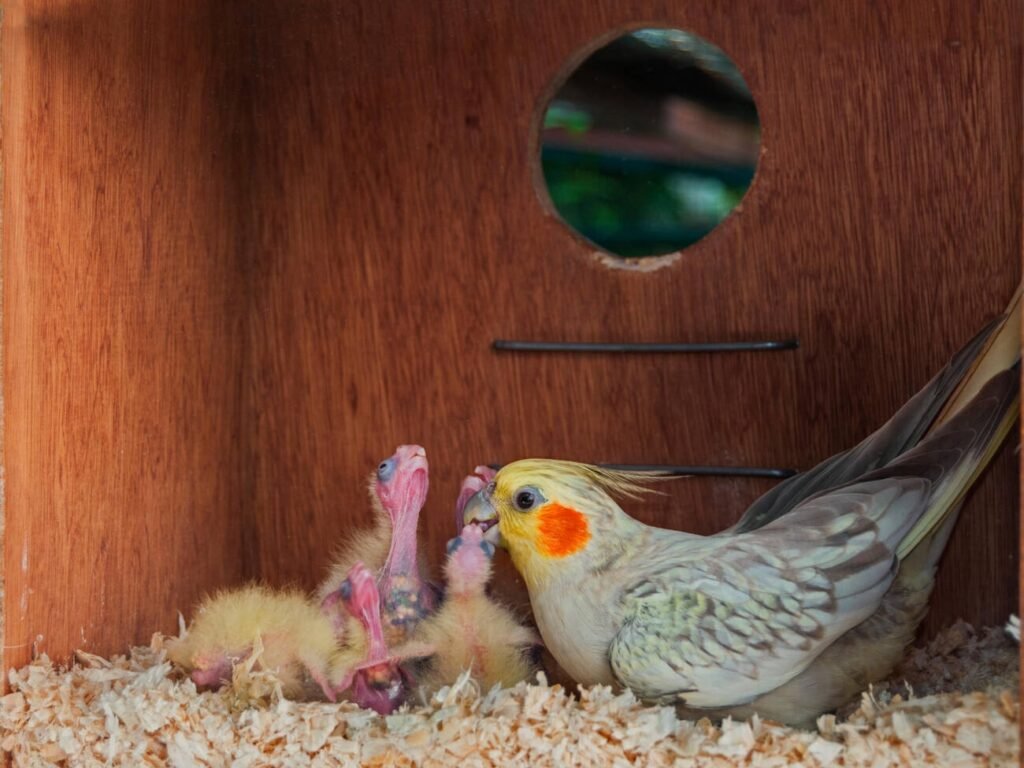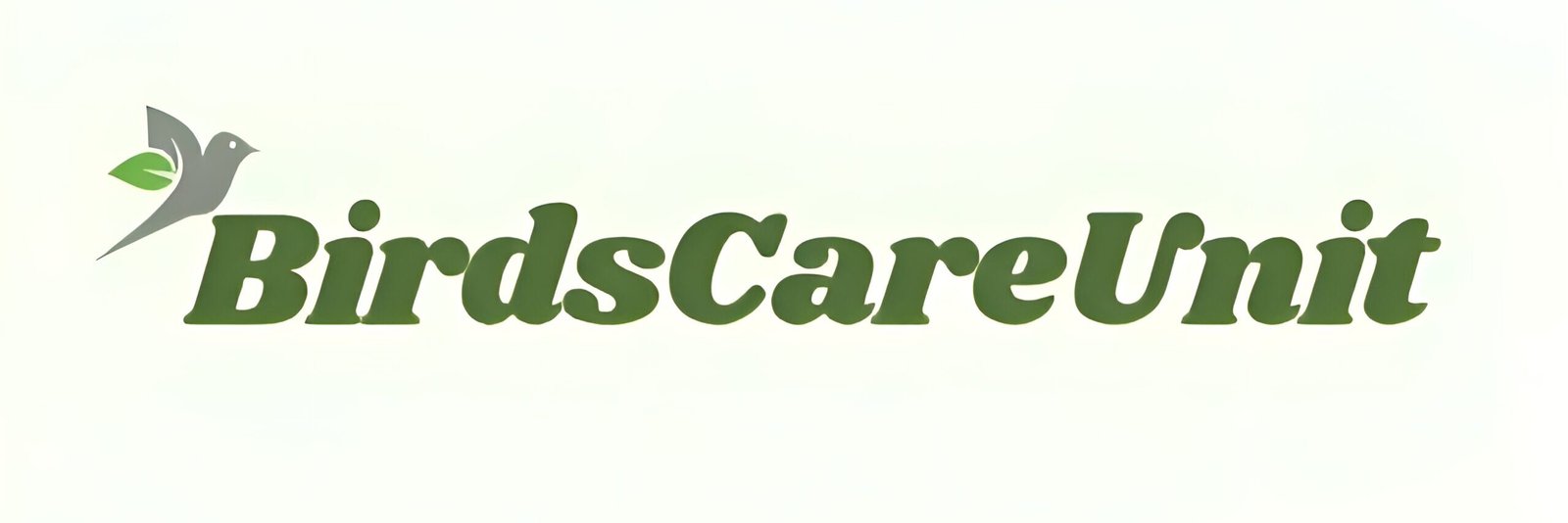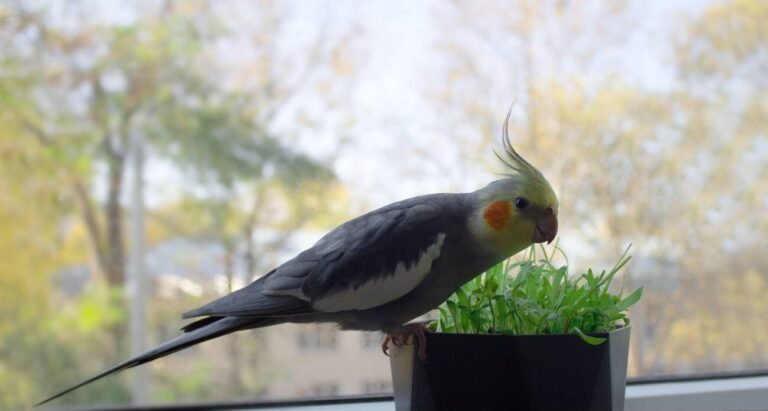Cockatiel Baby Feeding Schedule

Nurturing Cockatiel Babies: Crafting a Feeding Schedule for Optimal Growth
Cockatiels are not just charming pets; they’re also intelligent and affectionate birds that bring immense joy to any household. I’ve been breeding cockatiels for over eleven years, and my journey started with a pair of cockatiels gifted by a dear friend on my birthday. That gift changed my life, igniting a passion for birds that has grown with every new clutch of chicks.
Raising cockatiel babies is an incredibly rewarding experience, but it comes with a unique set of challenges—particularly when it comes to feeding. The first time my cockatiels laid five babies, I was thrilled but also quickly realized how critical the right feeding schedule was for their survival and growth.
In this comprehensive guide, I will walk you through a feeding schedule that ensures the optimal development of cockatiel babies from their first day to full weaning. If you’re planning to tame or rear baby cockatiels, you’ll find this information invaluable.
The Early Days: Age 0-2 Weeks
In the first two weeks of life, cockatiel babies are completely dependent on hand-feeding. Their digestive systems are delicate, and their needs are constant. Establishing a proper feeding routine during this period is crucial for their survival and well-being.
Feeding Frequency: Every 2-3 Hours
During the first two weeks, cockatiel babies require feedings every 2-3 hours—day and night. Their small stomachs cannot hold much at once, and they have a high metabolic rate, meaning they need frequent feedings to maintain their energy levels.
This stage can be exhausting, but it’s also when bonding occurs, as you develop a close relationship with the young chicks.
Hand-Feeding Formula: The Right Mix and Temperature
One of the key elements during this period is the hand-feeding formula. The formula should be warmed to approximately 100°F (37.8°C), simulating the natural warmth of the parent bird’s crop. Keeping the temperature consistent is important, as cold formula can be harmful to their developing digestive system.
A syringe with a small feeding tip is typically used to deliver the formula safely. Be careful to feed until the crop (a small pouch in the bird’s throat) is comfortably full but not overly distended. Overfeeding can lead to crop issues, which we will discuss later.
Essential Tips:
- Always use fresh formula: Discard any unused formula to avoid bacterial growth.
- Monitor digestion: Ensure the crop empties between feedings to avoid issues like crop stasis.
The Transitional Phase: Age 2-4 Weeks
Around the two-week mark, cockatiel babies will begin to explore solid foods while still relying heavily on hand-feeding. This is a critical phase where you start to introduce new textures and flavors to their diet.
Feeding Frequency: Every 3-4 Hours
As the babies’ digestive systems become more developed, you can gradually space out feedings to every 3-4 hours. During this time, you’ll notice that the chicks start to show an interest in their surroundings, including their food.
Introducing Softened Pellets and Ground Seeds
At this stage, I recommend starting to introduce a small amount of softened pellets or ground seeds mixed with their formula. The texture helps them learn how to peck and eat solid foods, a process called weaning. Make sure that the food is soft and easy to swallow, as their beaks are still quite tender.
Monitoring Crop Health and Digestion
Regularly check the crop to ensure it empties completely between feedings. Proper digestion is a good sign that the transition to solid food is going well. An impacted crop, where the food doesn’t pass through properly, is a serious concern. If you notice any issues, consult with an avian vet immediately.
Approaching Independence: Age 4-6 Weeks
By the time cockatiel babies are 4-6 weeks old, they’re ready to start the weaning process in earnest. This is an exciting time, as they begin to explore the wider variety of foods they will eat for the rest of their lives.
Feeding Frequency: Every 4-6 Hours
Hand-feeding sessions can now be spaced out to every 4-6 hours, as the babies become more independent. Their interest in solid food increases, and they’ll start to rely more on pellets, seeds, and soft fruits.
Thicker Formula and Soft Foods
As part of the weaning process, you’ll want to thicken the consistency of the formula to encourage the babies to try more solid foods. You can mix their usual hand-feeding formula with softened pellets or finely ground seeds to create a thicker blend.
This thicker formula is closer to the texture of their eventual adult diet and encourages self-feeding behaviors.
Access to Fresh Water
During this time, it’s also important to introduce a shallow dish of fresh water. Cockatiel babies need to stay hydrated, especially as they start to eat more solid foods. Clean the water dish frequently to avoid contamination.
Full Weaning: Age 6-8 Weeks
By 6-8 weeks, cockatiel babies should be fully weaned and capable of eating independently. This is the final step in their transition from formula to solid food, and it’s crucial to provide a variety of food options to ensure they get all the nutrients they need.
A Diverse Diet for Healthy Growth
At this stage, cockatiel babies should have access to a wide range of solid foods, including:
- High-quality pellets: These provide balanced nutrition with the right vitamins and minerals.
- Fresh fruits: Offer seedless apples, guavas, bananas, and berries to give them natural sweetness and antioxidants.
- Vegetables: Leafy greens like spinach and collard greens are excellent for bone health.
- Nutrient-rich seeds: Introduce seeds like sunflower seeds and millet in moderation to provide healthy fats and proteins.
Make sure all food is chopped into small, manageable pieces to avoid choking hazards.
Monitoring Eating Habits
Even though cockatiel babies are now independent, it’s important to keep an eye on their eating habits. Make sure they’re getting enough variety in their diet and are eating the right portions. Adjust as needed to ensure optimal nutrition.
The Importance of a Consistent Routine
Establishing a consistent feeding schedule during these critical early stages of a cockatiel’s life will set the foundation for their long-term health. In my experience, creating a feeding routine that adapts to the cockatiel’s growth stages not only ensures that the birds thrive, but it also makes the weaning process smoother for both the bird and the owner.
Challenges in Feeding Cockatiel Babies
Feeding cockatiel babies comes with its own set of challenges. From crop issues to picky eaters, every breeder or owner will face unique obstacles along the way. Some common issues include:
- Crop Stasis: When the food doesn’t pass through the crop properly, it can lead to crop stasis, which can be life-threatening. Regularly monitor the crop and consult an avian vet if you notice any issues.
- Refusing to Wean: Some cockatiel babies may resist the weaning process, preferring the formula over solid foods. Patience is key, and offering a variety of enticing foods can help ease the transition.
Cautions Against Harmful Foods
While providing a diverse diet is essential for cockatiel babies, it’s equally important to avoid certain foods that can be harmful. Some foods to avoid include:
- Chocolate: Another food that’s dangerous for birds, as it contains theobromine, which is toxic.
- Salty or Fatty Foods: Cockatiels have sensitive digestive systems, so avoid giving them processed or fatty foods that can lead to health issues.
Conclusion: Ensuring Healthy Development Through Proper Nutrition
Feeding cockatiel babies is a delicate process that requires attention to detail, patience, and love. Over the years, I’ve seen firsthand how important a balanced diet and consistent feeding schedule are to the overall health and happiness of these beautiful birds. By following a structured feeding routine, offering a variety of nutrient-rich foods, and staying vigilant about their health, you can ensure your cockatiel babies grow into strong, healthy adults.
As caretakers, we have the responsibility to provide the best possible care for these feathered companions. Whether you’re a first-time breeder or an experienced bird lover, crafting the right feeding schedule is one of the most important steps you can take to nurture your cockatiel babies.



